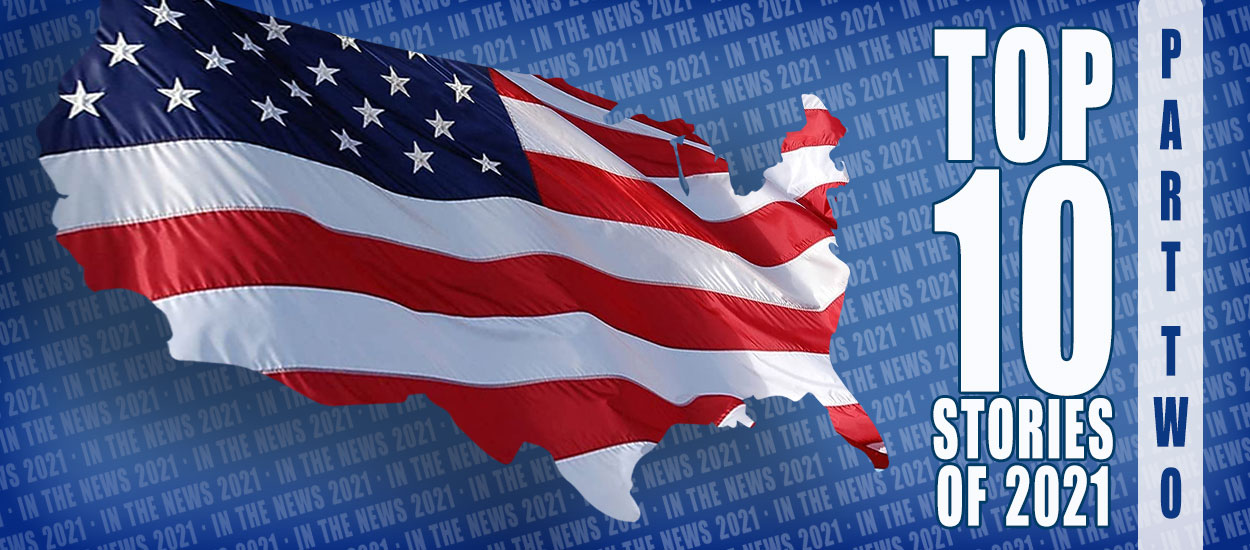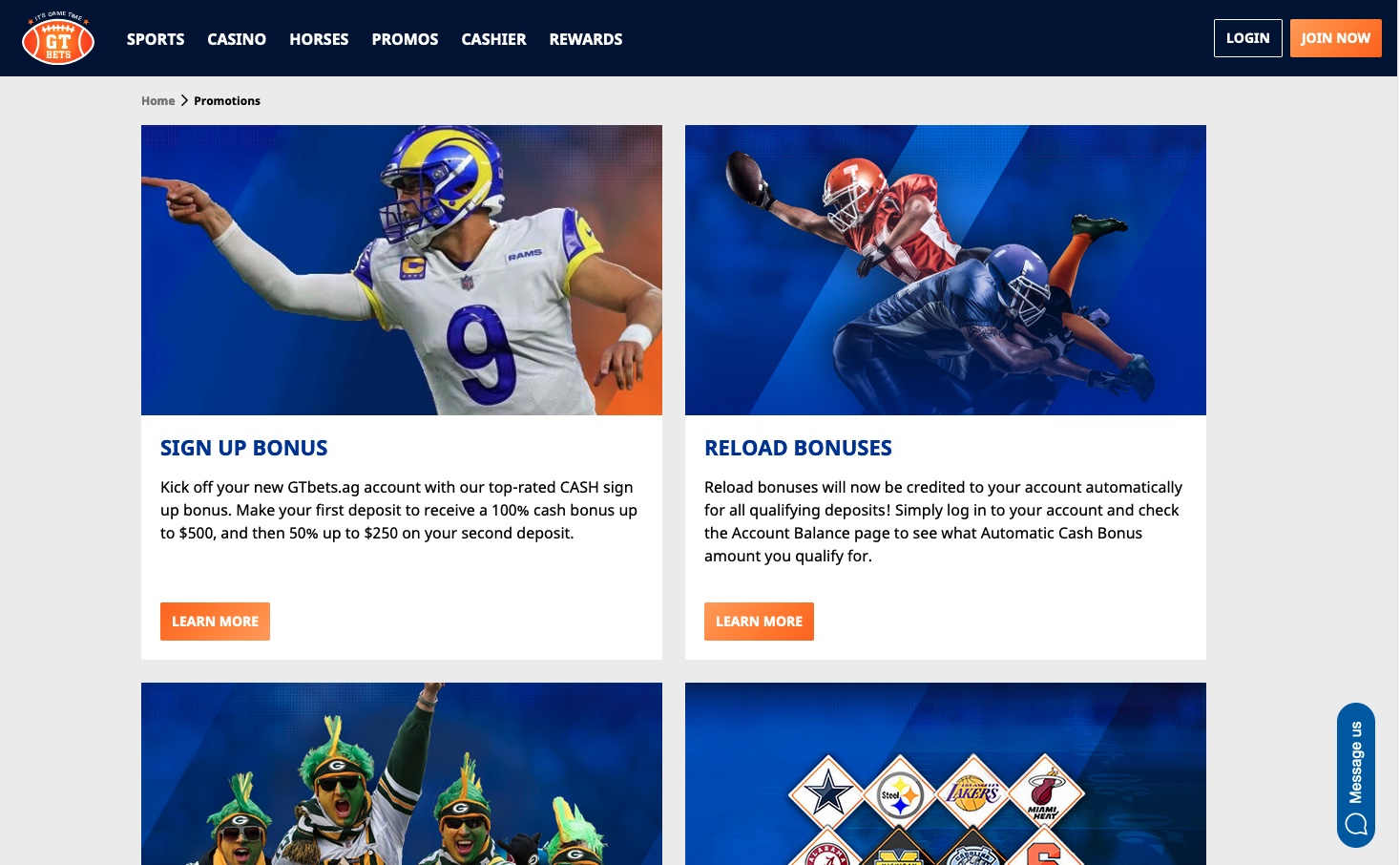The year in review for gambling, including the top story of 2021
The end of 2020 saw some relief as some states began to reopen although it was clear it was anything but normal. 2021 finally saw things pick up thanks to vaccines, but new variants of COVID-19 in recent months has created a situation where old is new again. To that end, many of the top gambling stories in 2021 will still be related to the ongoing pandemic. Tribal gambling, horse racing, profitability and legal issues topped the list.
5. The positive test of Medina’s Spirit at the Kentucky Derby and the implications on the sport of horse racing
2020 was a frustrating year for horse racing. The year started out with headlines noting horse deaths at Santa Anita racetrack and it only got worse from there. Tracks were forced to close for months due to COVID-19 outbreaks; the Kentucky Derby was pushed back to September instead of its usual May date, and horse racing handle and profits tumbled. The sport of kings needed a feel-good story in 2021. That seemed to occur when Medina's Spirit, a $1,000 yearling purchase, won the Kentucky Derby wire to wire.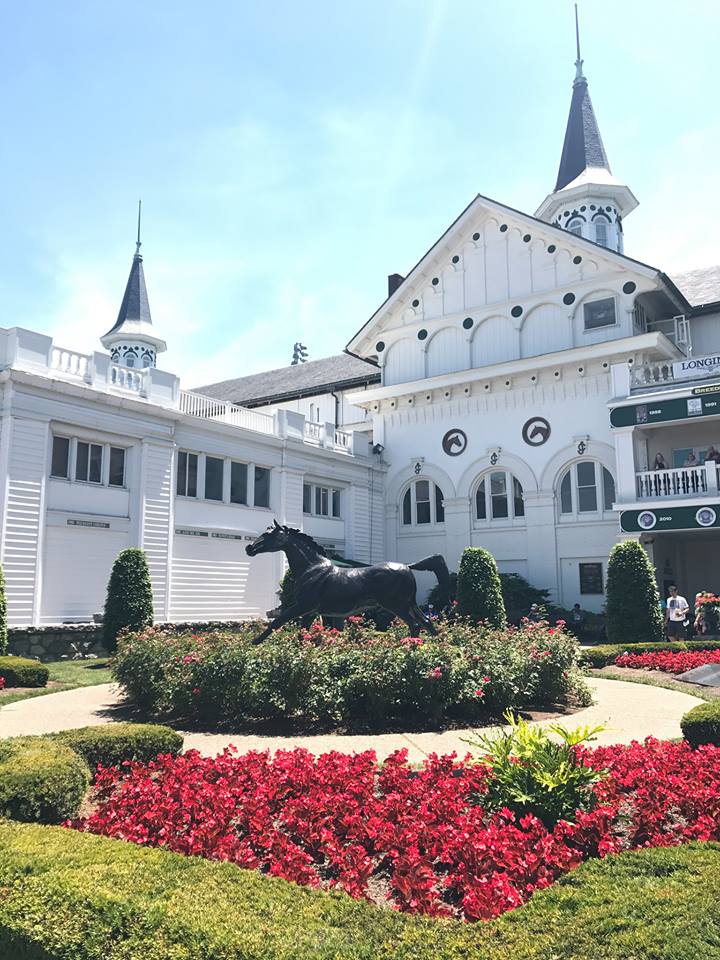 The excitement, however, was short lived when blood tests revealed that Medina's Spirit had 21 picograms of betamethasone, a banned steroid, in his system. Trainer Bob Baffert first laughed it off saying the amount was so small it was insignificant, but later Baffert started providing some odd reasoning for its presence, including suggestions that a groom who used cough syrup urinated in the horse's feed, which Medina Spirit eventually ate, and later said suggested the steroid was in an ointment that Baffert used for a skin condition and thus would have given no benefits to the horse's performance.
The excitement, however, was short lived when blood tests revealed that Medina's Spirit had 21 picograms of betamethasone, a banned steroid, in his system. Trainer Bob Baffert first laughed it off saying the amount was so small it was insignificant, but later Baffert started providing some odd reasoning for its presence, including suggestions that a groom who used cough syrup urinated in the horse's feed, which Medina Spirit eventually ate, and later said suggested the steroid was in an ointment that Baffert used for a skin condition and thus would have given no benefits to the horse's performance.
This wasn't the first time Baffert was reprimanded for drug use. Baffert was banned in Arkansas after Charlatan tested positive for a numbing agent in the 2020 Arkansas Derby and it was reported that in his career Baffert was reprimanded or suspended 29 times for illegal drug use. After the Medina's Spirit test was confirmed in a B sample, Baffert was banned from racing horses in New York and Kentucky.
The positive test led to investigations of drugging and horse abuse in the industry and calls by horse welfare groups to end what they called a barbaric sport. Others called for the U.S. to follow the British Horse Racing Authority’s zero tolerance policy and ban all race day drugs including Lasix and Bute, punishable by lifetime suspensions if trainers are caught violating the policy more than once. A Federal court overturned the NYRA suspension of Bob Baffert, just in time for the Saratoga meet.
Medina's Spirit returned for two more races, culminating with a second place finish to Knicks Go in the Breeders Cup Classic, but that would be his last race - the horse died of a heart attack during a 5 furlong workout at Santa Anita on December 6th.
The reason for the heart attack is uncertain and a full autopsy will be done in the new year, but it has brought up calls from many analysts, writers, and animal welfare groups like PETA to do more. Many have called for an outright ban on horse racing, while others have suggested that horses should not be running in races until later in life. A 3 year old horse is equivalent to a 9 year old human so many analysts believe forcing immature horses to train and run so hard early in life is just too much for them. The death also brought to light the recent case of XY Jet who died of a heart attack in January 2020. The horse’s trainer Jorge Navarro was convicted of effectively drugging and exercising the horse to death and it was also revealed that Navarro was involved in trying to dispose of the bodies of horses who died in his care before their deaths could be investigated by authorities. No one has accused Baffert of doing anything wrong in Medina’s Spirit’s case, other than the betamethasone found in the horse's system on Kentucky Derby Day, but the death has brought forward the ugliness and underbelly of the industry that many horsemen simply don't want the public to see.
The positive test and death of Medina's Spirit will keep a spotlight on horse racing for some time, and not in a good way, and that makes it the #5 story of 2021.
4. Massive decline in gambling stock prices
Resort casinos with a Macau presence have seen their stock go on a rollercoaster of highs and lows in the last two years. In January of 2020, before COVID-19 was a concern anywhere, casino stocks were riding highs among record profits, but in January of that year the virus came to light and after thousands died from the unknown virus in Wuhan, China took drastic action to stop its spread. Macau was forced to close their casinos for two weeks in February and the stock prices of all casino companies with a presence in Macau started to tumble. The drop was steady as COVID-19 spread to Europe and was even worse on March 19th after the WHO declared COVID-19 was a pandemic. At the beginning of April Las Vegas and other states closed their casino operations leading to a huge selloff on stocks on April 3rd. Las Vegas Sands (LVS) was trading at approximately $67 before COVID and dropped to $38 on April 3rd; Wynn was trading at $152 pre-COVID and dropped to $49 on April 3rd; Melco was trading at $25 in January 2020 and dropped to $11, less than half of its pre-COVID value on April 3rd; and MGM was trading at approximately $35 before covid but fell to $11 on April 3rd. Stocks eventually started to climb again after casinos reopened and analysts listed the stocks as a buy at the current price. In fact, by March 2021, after vaccines started to roll out, each stock rose to close to its pre-COVID value. That all changed again on August 20th. The Delta variant started taking hold and what was hoped to be a slowing of the pandemic was dashed, as deaths continued to climb, but the bigger concern was an announcement from Macau. The current licenses are set to expire in June 2022 and the hope was that Macau would simply renew licenses but that wasn’t to be. Macau instead announced that it was putting in stricter measures and Lei Wei Nong, the Secretary for Economy and Finance said he was worried about an unhealthy number of licenses, indicating that the country may roll back the number of licenses it has handed out. If that does happen it is almost certain that U.S. companies would be the first ones chopped. Other new measures were also announced about employee protection measures that would require increased salaries, benefits and preference given to hiring locals over foreign workers; strengthened verification measures for junket operators which will eat into casino revenues; social responsibility measures, which would require casinos to hire people with disabilities and make contributions to charities, education and science and culture, which will eat into profits; expansion of non-gaming elements such as convention space, entertainment complexes, infrastructure and parks, which will be costly and not contribute to casino revenues; and most concerning - that China would be assigning Chinese government representatives to monitor the day to day operations of the casinos. This last announcement apparently has many believing that the Chinese government may make operating a casino in Macau very unprofitable. As a result of those announcements, over $18 billion was erased in stock value in one day.
Stocks eventually started to climb again after casinos reopened and analysts listed the stocks as a buy at the current price. In fact, by March 2021, after vaccines started to roll out, each stock rose to close to its pre-COVID value. That all changed again on August 20th. The Delta variant started taking hold and what was hoped to be a slowing of the pandemic was dashed, as deaths continued to climb, but the bigger concern was an announcement from Macau. The current licenses are set to expire in June 2022 and the hope was that Macau would simply renew licenses but that wasn’t to be. Macau instead announced that it was putting in stricter measures and Lei Wei Nong, the Secretary for Economy and Finance said he was worried about an unhealthy number of licenses, indicating that the country may roll back the number of licenses it has handed out. If that does happen it is almost certain that U.S. companies would be the first ones chopped. Other new measures were also announced about employee protection measures that would require increased salaries, benefits and preference given to hiring locals over foreign workers; strengthened verification measures for junket operators which will eat into casino revenues; social responsibility measures, which would require casinos to hire people with disabilities and make contributions to charities, education and science and culture, which will eat into profits; expansion of non-gaming elements such as convention space, entertainment complexes, infrastructure and parks, which will be costly and not contribute to casino revenues; and most concerning - that China would be assigning Chinese government representatives to monitor the day to day operations of the casinos. This last announcement apparently has many believing that the Chinese government may make operating a casino in Macau very unprofitable. As a result of those announcements, over $18 billion was erased in stock value in one day.
Stocks slowly climbed again, although the new Omicron variant has spooked investors and the stock values of LVS, Wynn and Melco ended the year at the lowest point they have ever been. MGM has done better and closed at $45 a share, but that can be attributed to other ventures of MGM that are not related to casino gambling.
The roller coaster ride of stock prices and its impact on the industry in the United States makes this the #4 story of 2021.
3. The inability of U.S. sports betting companies to make a profit
Sports betting in the United States has been larger than anyone expected. Since its inception in 2018 New Jersey has led the way handling over $21 billion in bets and have held 7.2% of that handle for net revenues of over $1.5 billion dollars. Pennsylvania has handled over $10 billion in bets and has held 7.8% of that amount for net revenues of $851 million. Illinois, Indiana, Colorado, Michigan, Tennessee, and Virginia have all handled over $2 billion as well and have held similar percentages. Yet despite these large handles and holds, sportsbooks are not making money. 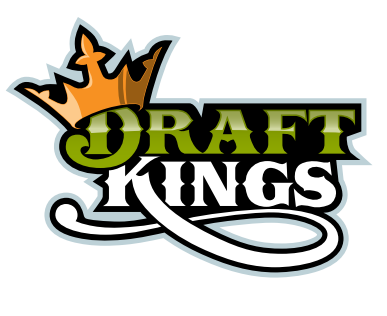 DraftKings, which operates the most sportsbooks in the U.S., lost $652 million in the first half of 2021 and it is expected their losses will exceed a billion dollars when the year in whole is tallied. FanDuel, PointsBet and BarStool Sports are not faring much better. The reason for the losses is not entirely certain, although the one factor that can’t be overlooked is taxes. Despite having less than half the revenue of New Jersey, Pennsylvania sportsbooks have paid out over $212 million in taxes to the government, while New Jersey sportsbooks have paid out $194 million. The 34% tax rate in Pennsylvania is unquestionably killing betting companies in the state, but Pennsylvania does not have the highest rate in the country. New Hampshire, Delaware, and Rhode Island all tax revenues at 50% and the winning bidders for New York online sports betting will have to pay out 51% of their revenues to the state government. In comparison, New Jersey’s tax of 13% for online revenue is a bargain, despite the fact they only charge 8.5% to sportsbooks at racetracks or casinos.
DraftKings, which operates the most sportsbooks in the U.S., lost $652 million in the first half of 2021 and it is expected their losses will exceed a billion dollars when the year in whole is tallied. FanDuel, PointsBet and BarStool Sports are not faring much better. The reason for the losses is not entirely certain, although the one factor that can’t be overlooked is taxes. Despite having less than half the revenue of New Jersey, Pennsylvania sportsbooks have paid out over $212 million in taxes to the government, while New Jersey sportsbooks have paid out $194 million. The 34% tax rate in Pennsylvania is unquestionably killing betting companies in the state, but Pennsylvania does not have the highest rate in the country. New Hampshire, Delaware, and Rhode Island all tax revenues at 50% and the winning bidders for New York online sports betting will have to pay out 51% of their revenues to the state government. In comparison, New Jersey’s tax of 13% for online revenue is a bargain, despite the fact they only charge 8.5% to sportsbooks at racetracks or casinos.
Taxes, however, are not the only problem. Even in Michigan, where taxes are 8.4% of revenue; Indiana, where the tax rate is 9.5% of revenue; Illinois, where the tax rate is 15% and Colorado, where the tax rate is 10%, sportsbooks are not turning a profit, despite large handles in each state. The sportsbooks point to marketing and customer acquisition costs in highly competitive markets as the main reason for the losses, but many analysts feel it is the way companies are actually operating. While traditional sportsbooks use professionals to help them set lines, U.S. books instead have been cutting out professionals and DraftKings CEO Jason Robins came under a great deal of criticism when he suggested that winners were not welcome.
"This is an entertainment activity. People who are doing this for profit are not the players we want," Robins told participants at a gambling summit.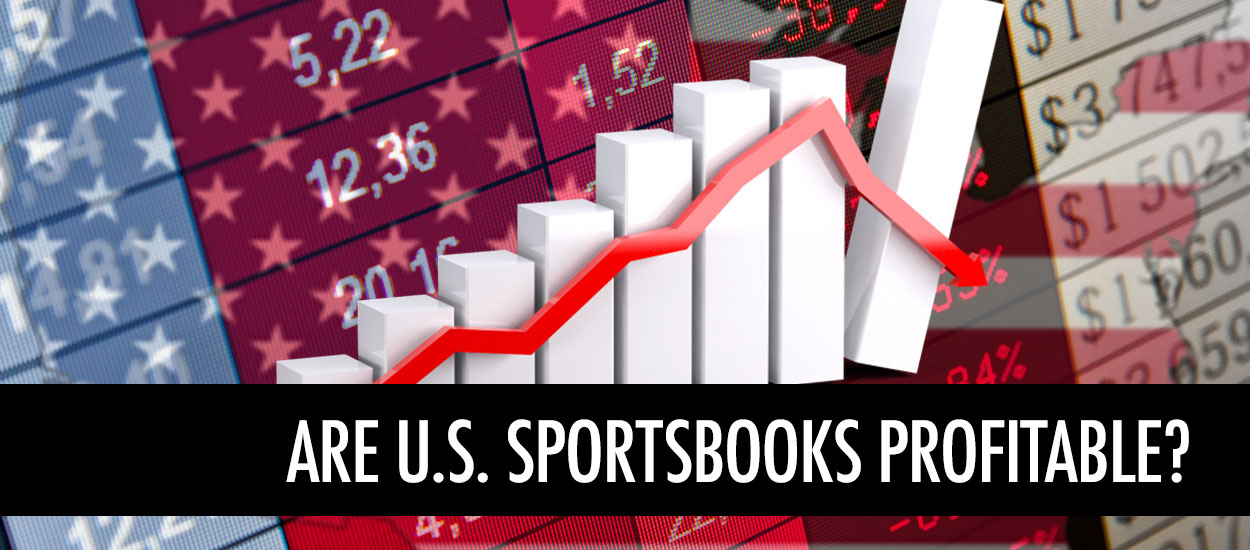 Others have said that type of old-style thinking is just one of the issues. Experts point to concerns about beta slippage whereby books start chasing lines and end up in a situation where they lay off action on the player, so instead of winning the expected hold on a game they give rebates to players to take the other side of their open bet. By doing so, analysts say they are guaranteed to lose money in the long run. In addition, experts have noted that books are taking ridiculous action on minor games and events which, in the end, will likely cost them money. And, they are allowing players to parlay props and games, which can only lead to disaster, as props are known to be the weakest part of most sportsbooks.
Others have said that type of old-style thinking is just one of the issues. Experts point to concerns about beta slippage whereby books start chasing lines and end up in a situation where they lay off action on the player, so instead of winning the expected hold on a game they give rebates to players to take the other side of their open bet. By doing so, analysts say they are guaranteed to lose money in the long run. In addition, experts have noted that books are taking ridiculous action on minor games and events which, in the end, will likely cost them money. And, they are allowing players to parlay props and games, which can only lead to disaster, as props are known to be the weakest part of most sportsbooks.
Many experts have also noted that books are far too computer oriented. Successful bookmakers in the past have used intuition, along with professionals, to help set lines. But nowadays everything is based on computer algorithms and unfortunately these algorithms are simply not able to take into account all the intangibles that successful bettors use to win.
One thing for certain is that sportsbooks are very competitive and seem willing to cut each others throats to win a bid rather than looking out for the best interest of the industry as a whole. The New York Sports betting license was a prime example. Instead of banding together and saying they would not agree to an egregious tax rate that would make it impossible to win money, the books instead did whatever they deemed was necessary to win the bid and figured they would worry about the logistics and feasibility later. Robins and other operators say they will make money eventually, but there is no reason to believe that is true, unless they change their ways.
The situation is so dire that Barrons put out an article in September saying that with so many players in such a small market and with so much money being demanded by the governments, sportsbooks in the United States may never turn a real profit. The lack of profitability and concerns about the future of many U.S. sports betting companies despite record handles makes this the #3 story of 2021.
2. The Florida Tribal Gambling Kerfuffle and its impact on Tribal Gambling U.S. wide
In 2021 the gambling compact between the Seminole Tribe and the state of Florida was set to expire, but Governor Ron DeSantis signed a new compact with the Tribe in April which guaranteed the state a minimum of $2.5 billion in revenue over the next five years and $6 billion by 2030. The 30-year compact also gave the Seminole Tribe the exclusive right to offer sports betting in the state and it allowed them to partner with pari-mutuel operations to expand sports betting outside of tribal lands. The compact also extended the types of casino gambling it could operate on the reserves.![]() Immediately commercial casino operator Magic Casino, as well as Bonita Springs Poker Room, filed a complaint with the state and federal government saying that the compact violated federal law, since the IGRA required all Indian gaming to take place on Tribal lands. The section of the IGRA they were referring to is listed below and the complainants said that it is clear that bets outside of Indian lands are not permitted.
Immediately commercial casino operator Magic Casino, as well as Bonita Springs Poker Room, filed a complaint with the state and federal government saying that the compact violated federal law, since the IGRA required all Indian gaming to take place on Tribal lands. The section of the IGRA they were referring to is listed below and the complainants said that it is clear that bets outside of Indian lands are not permitted.
"Indian tribes have the exclusive right to regulate gaming activity on Indian lands if the gaming activity is not specifically prohibited by Federal law and is conducted within a State which does not, as a matter of criminal law and public policy, prohibit such gaming activity."
In addition to the pari-mutuel concerns, the complainants said that the Seminole Tribes would be accepting mobile bets from citizens located anywhere in Florida, which could violate The Wire Act in addition to the IGRA, since tribal lands are sovereign. Thus, any mobile sports bets not placed on the reserves would be interstate and illegal.
Interior Minister Deb Haaland, a native American herself, petitioned for the compact to be ratified with her attorney Rebecca Ross saying the complaints had no merit.
"The State and Tribe are free to denominate where the gaming occurs for state or tribal law purposes, and moreover, IGRA permits the Tribe and the State to allocate jurisdiction and regulatory authority over the gaming activity addressed in the Compact consistent with Federal law, including IGRA," stated Ross.
Magic Casino and Bonita Springs also said that under the IGRA any partnerships must ensure that the Tribes maintain the majority of profits, but the agreement said that pari-mutuel operations would keep 60% of the revenue that was won at their facilities.
Haaland noted that the compact automatically became ratified when her office did not appeal the compact in the 45 days after it was signed by DeSantis. The situation caught the attention of other states such as Michigan, who were also considering how to allow their tribes to benefit from betting off tribal lands and it caught the eyes of major sportsbooks who would be shut out for three decades in Florida if the compact passed. In fact, DraftKings threw their support and resources behind the efforts of Magic Casino and Bonita Springs to defeat the compact.
The situation caught the attention of other states such as Michigan, who were also considering how to allow their tribes to benefit from betting off tribal lands and it caught the eyes of major sportsbooks who would be shut out for three decades in Florida if the compact passed. In fact, DraftKings threw their support and resources behind the efforts of Magic Casino and Bonita Springs to defeat the compact.
In November, a federal court in D.C. considered both sides and rejected Deb Haaland’s approval and vacated the whole compact, saying it was indeed unconstitutional. While the biggest concern was remote gambling, the court said it had to reject the compact in whole as it could not pick and choose which parts were illegal. With that ruling the Seminole Tribe could not conduct any sports betting outside of tribal lands, could not offer mobile betting of any sort and could not offer craps and roulette on the reserves, which were also added in the compact. The Seminole Tribe immediately appealed the ruling, and it is expected that Governor DeSantis will also throw his support to the appeal. It is not clear if the Tribe have deactivated their online app, which had already been implemented and taking bets.
If is expected that this case is so important that it could have implications on not only Tribal gambling and the IGRA, but on the Wire Act as well. If the Wire Act is repealed, and many believe President Biden is considering asking the Supreme Court to do so after complaints nationwide by casinos and native groups, then it will not matter where remote bets are placed, since all online gambling would be legal. Repealing the law, however, could open a whole other can of worms, since the U.S. has used the Wire Act as a means to arrest operators outside of the United States that take bets from American citizens. In the end that could mean that offshore sportsbooks could take bets from U.S. citizens without fear of prosecution and there are many bookmakers who would love to get back into the game and have no trouble competing with licensed and regulated American-based sportsbooks. It could also allow Antigua to reopen their complaint against the United States, which they filed and won over 15 years ago.
The whole implication of this compact on the future of Tribal gambling in the United States, as well as the possible extension to the Wire Act, makes this the #2 story of 2021.
1. The somewhat return to normal of sports and gambling in the U.S.
Without question the biggest story of 2020 was the big hit to revenues for both sports leagues and sportsbook operators as leagues were forced to cancel or suspend games due to the COVID-19 virus. Major events cancelled in 2020 included March Madness, the Summer Olympics, The Player’s Championship and The British Open. The playoffs for the NBA, MLS and NHL were all played later in the year, but were conducted without fans in attendance and teams isolated in a bubble to ensure they didn’t catch the virus from the public. As well The Masters, U.S. Open and The Kentucky Derby were pushed back to the fall and played without fans in attendance and the Indianapolis 500 and most NASCAR races were run without fans in attendance as well. The CFL played no games in 2020 and the virus led to the demise of the XFL. The big 10, ACC and Pac-12 started playing football games later that expected, and a few bowl games had to be cancelled. The impacts of the cancellation on sports and casino revenues were undeniable.  2021 saw things get somewhat back to normal. The first part of the year saw events return to mostly empty stadiums and arenas as the leagues tried to put into place some social distancing measures, but as the virus started to become more contained and vaccines became readily available, everything started to reopen. As a result, all major events were played on schedule and league revenues finally began to get back on track. The summer Olympics did take place in Japan after being postponed in 2020, but it was held without fans, as Japan had a COVID outbreak at the time with the Delta variant running rampant. If there was one frustrating incident for fans in 2021 it was at the Memorial golf tournament when John Rahm was forced to retire with a 6 shot lead prior to the final round after it was discovered that he had a positive test result, which was only required because Rahm did not get vaccinated before the tournament.
2021 saw things get somewhat back to normal. The first part of the year saw events return to mostly empty stadiums and arenas as the leagues tried to put into place some social distancing measures, but as the virus started to become more contained and vaccines became readily available, everything started to reopen. As a result, all major events were played on schedule and league revenues finally began to get back on track. The summer Olympics did take place in Japan after being postponed in 2020, but it was held without fans, as Japan had a COVID outbreak at the time with the Delta variant running rampant. If there was one frustrating incident for fans in 2021 it was at the Memorial golf tournament when John Rahm was forced to retire with a 6 shot lead prior to the final round after it was discovered that he had a positive test result, which was only required because Rahm did not get vaccinated before the tournament.
Casinos which were also forced to close or open with major restrictions in 2020 finally reopened without restrictions for the most part in 2021 and the results were obvious and immediate. Nevada, New Jersey, and Pennsylvania all recorded record profits for both land-based and online casino wagering in the summer and sports betting revenue expanded in those states and elsewhere to levels never seen before.
Unfortunately, the Omicron variant has taken hold at the end of 2021, which has led to the cancellation of bowl games, minor tournaments, and games in some sports leagues, but the revenue generated from the rest of 2021 will at least ensure that the leagues will all be able to function without major implications like 2020.
The fact that Americans were able to start enjoying games and gamble at casinos again without interruptions was a huge relief and the top gambling story of 2021.
Check out the the rest of the top gambling stories in the U.S. for 2021, including the NCAA NIL ruling, sports betting licenses in New York and more, here.
Read insights from Hartley Henderson every week here at OSGA and check out Hartley's RUMOR MILL!










